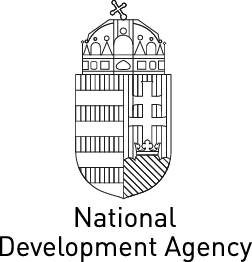ESF
ESF (primarily) grants funding for the following priorities in the area of the Convergence and Regional Competitiveness and Employment Objectives:
▫ Promoting positive management and preventing economic changes by developing the adaptability of employees and enterprises primarily through the following means:
- Increasing investment in human resources, developing and implementing life-long learning educational systems and strategies, increasing access to training for individuals with low-level qualifications and older employees, promoting entrepreneurship;
- Developing and disseminating more productive and innovative forms of work management, including occupational health and safety, specific employment development, etc.
▫Promoting better access to employment for job seekers and inactive persons, with special regard to long-term and youth unemployment, as well as active ageing, extending working life and increasing labour market involvement primarily through the following means:
- Strengthening and modernisation of labour market organisations, primarily employment services;
- Implementing active and preventive measures and early identification tailored to the individual, such as training tailored to personal needs, job seeking and mobility, self-employment, including incentives promoting cooperational enterprises, setting up businesses and labour market involvement, flexible measures keeping older employees employed as long as possible, as well as measures targeting the reconciliation of work and private life;
- Measures and specific action targeting the integration of women in the labour market and the reduction of gender-based labour market segregation;
- Action promoting the integration of refugees in the labour market, and consequently their social integration, including orientation and language training, recognising their expertise and knowledge, as well as, wherever possible, action promoting the integration of cross-border labour markets.
▫ Strengthening the social integration of disadvantaged persons, with special regard to their integration in employment and labour market discrimination, primarily through the following means
- Social integration of disadvantaged persons, such as providing assistance for socially excluded persons, early school leavers, minorities and persons with disabilities through employment measures, as well as access to vocational training and education;
- Acceptance at the workplace and fighting labour market discrimination.
▫ Strengthening social capital, with special regard to the following:
- Reforming education and training systems, developing employment, developing the labour market relevance of vocational training and education, on-going development of the professional skills of teachers, trainers by taking account of the knowledge-based economy;
- Networking amongst higher education institutions, research and technological centres and enterprises.
▫ Improving and developing partnership, agreements and initiatives through the networking of organisations with vested local, regional and national interests, in order to promote reforms impacting the entire scope of employment and the labour market.
Within the scope of the Convergence Objective, ESF is also authorised to finance action that complies with the following priorities:
▫ Improving and extending the scope of investments in human capital, with special regard to the following:
- Implementing reforms concerning education and training systems, in particular, with the objective of improving compliance with knowledge-based society related demands;
- Increasing involvement in life-long learning in education and training, including the introduction of measures targeting the significant reduction of the number of early school leavers, as well as better access to quality primary, vocational and higher education;
- Developing human potential in the area of research and development, explicitly by prioritising post-graduate and research training.
▫ Strengthening institutional capacities, improving the efficiency of public administration, as well as local, national and regional level public services, by taking account of economic, employment and education-related, social and environmental reforms implemented, as well as good governance, with special regard to the following:
- Mechanisms promoting good policy and programme design, monitoring and evaluation, including support of studies, statistics and expert opinions, as well as inter-ministerial coordination and dialogue between private and public organisations;
- Capacity development regarding the implementation of policies and programmes concerning the relevant areas, including the application of rules, with special regard to executive and staff training and specific support offered to key services.
This priority can be supported around the whole country in the case of the beneficiary member states of the Cohesion Fund.

